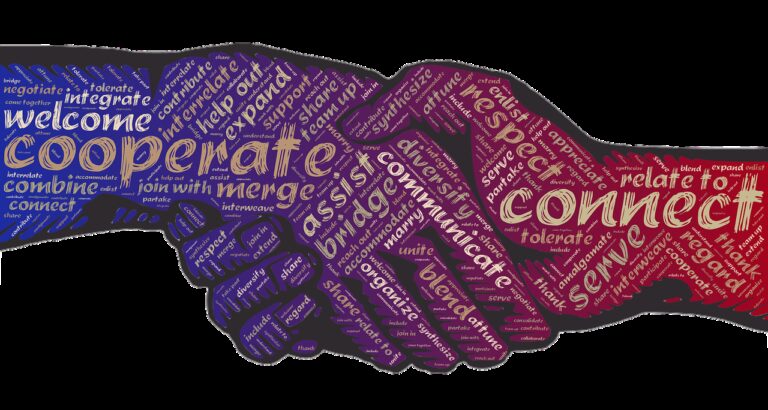Unpacking the ‘Nice Guy’ Stereotype
The ‘Nice Guy’ stereotype is a prevalent notion in modern dating culture, often characterizing individuals who are kind, considerate, and attentive towards others. While these qualities are undoubtedly admirable, the ‘Nice Guy’ label has acquired a negative connotation over time.
It implies a passive approach to relationships, where being overly accommodating and agreeable is seen as a way to win affection or approval from others. This stereotype suggests that nice gestures alone are sufficient to attract romantic interest and overlooks the fundamental importance of genuine connection and mutual respect in healthy relationships.
The Significance of Confidence in Dating and Relationships
Confidence plays a pivotal role in shaping our interactions with others, especially in the realm of dating and relationships. It is an attractive quality that exudes self-assurance, assertiveness, and authenticity. While kindness and empathy are essential traits, confidence acts as a catalyst that amplifies one’s attractiveness and magnetism.
When individuals display confidence in themselves and their abilities, they project an aura of strength and security that is inherently appealing to potential partners. Confidence enables individuals to set boundaries, express their needs openly, and pursue their desires without fear or hesitation.
Striking a Balance: Navigating Between Kindness and Confidence
In debunking the ‘Nice Guy’ myth, it becomes crucial to find a harmonious balance between kindness and confidence in interpersonal dynamics. While kindness forms the foundation of empathy and compassion towards others, confidence provides the necessary drive to assert one’s identity authentically.
By combining these attributes effectively, individuals can cultivate meaningful connections based on mutual respect while also asserting their boundaries with conviction. Ultimately, understanding the nuances between being nice versus being confident empowers individuals to navigate romantic landscapes with clarity and purpose.
The Origins of the ‘Nice Guy’ Myth
Historical Context and Societal Influences
The concept of the ‘Nice Guy’ dates back to societal norms that placed a high value on politeness, chivalry, and selflessness in men. These qualities were often seen as desirable traits for potential partners, leading to the belief that being nice was enough to win someone’s heart. However, this notion failed to consider the importance of confidence and assertiveness in romantic pursuits.
Throughout history, various cultural influences perpetuated the idea that being kind and accommodating was all it took to attract a romantic partner. From classic literature depicting noble gentlemen as ideal suitors to traditional gender roles dictating submissive behavior from men, the ‘Nice Guy’ myth became deeply ingrained in society’s collective consciousness.
Misconceptions about Kindness and Attraction
One of the key misconceptions surrounding the ‘Nice Guy’ myth is the belief that kindness alone is sufficient for romantic success. While being kind is undoubtedly important in any relationship, true attraction often stems from a balance of qualities such as confidence, ambition, and independence.
Many individuals fell into the trap of equating niceness with desirability without realizing that genuine connections are built on more complex dynamics. Moreover, there was a widespread misconception that women were inherently drawn to passive and overly accommodating partners.
This assumption not only undermined women’s agency but also perpetuated harmful stereotypes about their preferences in relationships. In reality, both men and women are attracted to partners who demonstrate a healthy mix of kindness and confidence—a combination that goes beyond superficial displays of niceness.
The Pitfalls of the ‘Nice Guy’ Mentality
Lack of Assertiveness and Self-Assurance
Many people who fall into the ‘Nice Guy’ category often struggle with being assertive and standing up for themselves. They prioritize avoiding conflict over expressing their true feelings or desires, leading to a lack of self-assurance.
This behavior can stem from a fear of rejection or a desire to please others at the expense of their own needs. As a result, they may find themselves in situations where their boundaries are crossed or their opinions are disregarded.
Moreover, the lack of assertiveness can hinder personal growth and development. Without the ability to assert oneself in various aspects of life, such as career advancement or social interactions, individuals may miss out on opportunities for self-improvement and success.
Confidence plays a crucial role in asserting one’s worth and pursuing goals with conviction. By succumbing to passivity, ‘Nice Guys’ may inadvertently limit their potential and hinder their overall happiness.
Perceived Neediness and Insecurity
One common trait associated with the ‘Nice Guy’ mentality is perceived neediness. Constantly seeking validation from others or relying on external approval for self-worth can come off as clingy or insecure.
This behavior stems from a lack of confidence in oneself and an over-reliance on external sources for validation. It can be off-putting to potential romantic partners or friends who may perceive this neediness as suffocating.
Furthermore, insecurity often plagues individuals who embody the ‘Nice Guy’ persona. Constantly comparing oneself to others, harboring self-doubt, or seeking constant reassurance can be exhausting both for the individual and those around them.
Insecurity tends to manifest in various aspects of life, impacting relationships, career progression, and overall well-being. Overcoming these feelings requires a shift towards building self-confidence and embracing one’s worth independent of external validation.
Why Confidence is Key
Attraction Psychology and Evolutionary Biology
Confidence is like a magnet that draws people in, and this phenomenon has deep roots in attraction psychology and evolutionary biology. From an evolutionary standpoint, confidence signals strength, capability, and the ability to protect and provide for a potential mate.
This primal instinct to seek out confident partners dates back to our ancestors who needed strong, self-assured individuals to ensure survival in challenging environments. In the modern dating world, these primal instincts still influence our perceptions of attractiveness.
Moreover, attraction psychology delves into the subconscious signals we send and receive when interacting with others. Confidence exudes a sense of self-worth and assurance that is inherently appealing.
When someone displays confidence through their body language, speech, and actions, it communicates that they are comfortable in their own skin and have a clear sense of identity. This signals to others that this individual is emotionally stable, secure in themselves, and likely to be a reliable partner.
The Allure of Self-Assured Individuals
Self-assured individuals possess an undeniable allure that transcends physical appearance or material possessions. Their confidence radiates from within, creating an aura of charisma that captivates those around them.
People are naturally drawn to those who exude self-confidence because it reflects strength of character, resilience in the face of challenges, and a positive outlook on life. Self-assured individuals inspire trust and admiration from others because they project an image of being grounded and sure of themselves.
Furthermore, self-assured individuals tend to be more assertive in pursuing their goals and desires without being overbearing or aggressive. This balance between confidence and humility allows them to navigate social interactions with ease while staying true to their values.
In romantic relationships, partners are attracted to self-assured individuals because they provide stability, emotional support, and a sense of security. Confidence not only enhances one’s personal magnetism but also fosters deeper connections with others based on mutual respect and admiration.
Embracing Personal Growth for Enhanced Confidence
In the journey of building confidence, self-improvement through personal development plays a crucial role. It’s about actively working on yourself to become the best version you can be.
This involves setting goals, exploring your interests, and constantly seeking opportunities for growth. Whether it’s reading self-help books, pursuing a new hobby, or attending workshops and seminars, investing in your personal development can significantly boost your confidence levels.
Conquering the Fear of Rejection and Failure
One of the major obstacles that often hold people back from exuding confidence is the fear of rejection and failure. It’s essential to acknowledge that rejection is a normal part of life, especially when it comes to dating and relationships.
By reframing rejection as a learning experience rather than a reflection of your self-worth, you can gradually overcome this fear. Similarly, understanding that failure is not permanent but rather a stepping stone towards success can help shift your mindset towards embracing challenges with resilience.
Cultivating Resilience Through Mindset Shifts
To truly build unwavering confidence, cultivating resilience through mindset shifts is key. Instead of dwelling on past rejections or failures, focus on what you’ve learned from those experiences and how they have contributed to your personal growth.
Practice positive affirmations daily to reinforce self-belief and combat self-doubt. By shifting your perspective from fear-based thinking to growth-oriented thinking, you’ll gradually notice a significant improvement in your confidence levels and overall well-being.
Real-Life Examples: Success Stories
Anecdotes from individuals who embraced confidence over niceness
Let’s delve into some real-life stories of individuals who chose to prioritize confidence in their interactions over adhering to the ‘Nice Guy’ stereotype. Sarah, a young professional, used to always put others’ needs before her own, believing that being agreeable and accommodating would make her more likable.
However, after attending a personal development workshop that emphasized self-confidence, she decided to take a different approach. By asserting her opinions, setting boundaries, and exuding self-assurance in social situations and dating experiences, Sarah noticed a significant shift in how others perceived her.
Another example is Alex, who had always been the quintessential ‘nice guy.’ He went out of his way to please everyone around him but found himself constantly overlooked in romantic pursuits. Frustrated with this pattern, Alex decided to work on building his confidence and assertiveness.
As he started valuing his own worth and expressing his true self more authentically without fear of rejection, he saw remarkable changes in his relationships. People respected him more for standing up for himself and expressing his true desires rather than simply aiming to please others.
Positive outcomes in dating, relationships, and personal growth
The transformation these individuals experienced by embracing confidence over niceness extended beyond just their dating lives; it seeped into their personal growth as well. Sarah not only found herself attracting romantic partners who valued her for who she truly was but also noticed improvements in her career as she began advocating for herself more effectively at work.
Similarly, Alex’s newfound confidence didn’t just change how others perceived him romantically; it also boosted his self-esteem and overall satisfaction with life. These success stories serve as testaments to the power of prioritizing self-confidence over conforming to outdated stereotypes like the ‘Nice Guy.’ By recognizing the importance of being authentic, assertive, and valuing oneself first and foremost, individuals can unlock a world of opportunities not only in their dating lives but also in their relationships with others and personal development journeys.
Conclusion
Recap on Debunking the ‘Nice Guy’ Myth
In wrapping up our exploration of the ‘Nice Guy’ myth, it’s crucial to reinforce that being kind and respectful towards others is commendable and should never be compromised. However, the notion that niceness alone is the ultimate key to winning someone’s heart has been unequivocally debunked. By understanding that true confidence and self-assurance are what truly attract others, individuals can break free from the limitations imposed by subscribing to the ‘Nice Guy’ mentality.
Encouragement for Readers to Prioritize Self-Confidence in All Aspects of Life
As you reflect on this enlightening journey through the realms of dating dynamics and relationship psychology, remember that confidence is a trait that transcends interpersonal relationships. By prioritizing self-confidence in all aspects of life – be it career pursuits, personal growth endeavors, or social interactions – you are not only enhancing your appeal to others but also nurturing a deep sense of self-worth and empowerment within yourself.
Embrace your unique qualities and strengths, exude authenticity, and watch how the world around you responds to your magnetic presence. Let this newfound wisdom serve as a beacon of hope and inspiration as you navigate through life’s myriad experiences.
Embrace your inner confidence with open arms, knowing that it is not arrogance but a quiet strength that will propel you towards success in relationships and beyond. Remember, you are worthy of love, respect, and happiness – so go forth with boldness into each new day, radiating confidence like a beacon for all to see.






